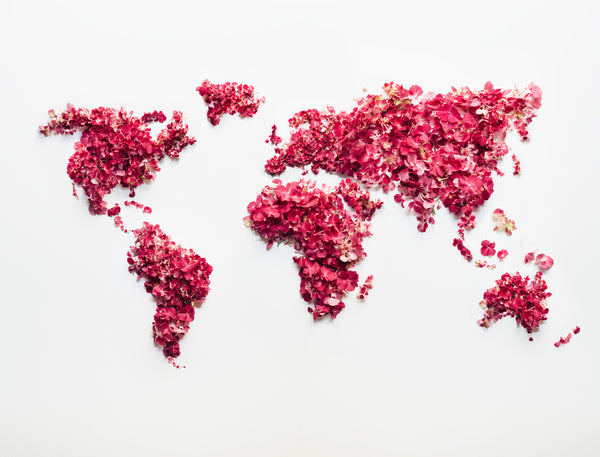A Look at Global Access to Hygiene Products

For most of us, access to feminine hygiene products is a matter of timing and convenience. If we’re in a period bind, it’s because we forgot to put a pad in our purse or stock up on tampons. But we have so many options; we can even have pads and tampons delivered to our doors monthly (wink wink). For many women around the globe, this is not the case and the lack of access to feminine hygiene products (or disposable products) is a major problem.
While for many women in the US, getting your period is a nuisance; around the world a woman’s period can mean serious health problems. Due a lack of access to proper, safe products, menstruating women face considerable sanitary issues.
For example, according to research conducted by WaterAid, in Afghanistan:
- 70% of girls surveyed responded that during their period they cannot eat certain foods
- 70% responded that they cannot wash/shower or bathe
- 30% responded that they do not attend school
- Only 15% of surveyed girls responded that there were no restrictions placed on them
Results were fairly similar in Nepal, and West Bengal, and certain areas of India. 51% of girls in Iran don’t take a bath for the entire length of their period. These particular statistics highlight the issues some women have in merely being able to clean themselves during menstruation, some might go the whole week without a proper wash.
This can not only cause isolation and discomfort, but also poor health. Using unclean sanitary materials can lead to local infections that ultimately can travel up the body affecting the cervix or uterus. Wet pads can cause skin irritation.
In some cases, these difficulties can stem from sexist notions about women’s sexuality and menstruation. Menstruation is traditionally stigmatized in a variety of religions and cultures. According to the Old Testament for example, a woman is seen as ritually impure during the week of her menstruation and should be barred from touching certain objects, even her husband.
Many religions isolate women from religious ceremonies during the week of menstruation, including Judaism, Islam, Hinduism among others. Of course, in many communities these restriction traditions are not followed to closely, while in others having a period can cause women to be entirely isolated.
In addition to these health issues, women across the globe who lack proper access to hygiene products are unable to work or attend school. In Ethiopia 51% of girls miss between one and four days of school per month because of their period. And around 40% of those surveyed reported reduced performance because of this missed time.
Missing so many days of school or work can set girls and women back in their education and careers. It can contribute to an imbalance in schools and certain industries, if women are forced to take time off several days a year, or even several days a month. Even more importantly, it can be devastating, emotionally draining and uncomfortable to be pulled out of society for days at a time. Providing women and girls with sanitary pads can allow them to return to school, and allow them to engage in the workplace more confidently.
While this is a global issue, it is also a problem here at home, one faced by many homeless women in the US. They often don’t have regular access to toilets or showers, or sufficient pads and tampons. They also have limited wardrobes and can’t change as often as one normally does while menstruating.
In recent years there has been more of an effort to target this sensitive yet important issue. For example, non-profits like Days for Girls work to provide girls and women around the world with ready access to sustainable hygiene and health education. DfG works in over 100 countries, and they have over 620 chapters worldwide.
Organizations like these are working hard to help women in need, here at home and across the globe to gain proper access to hygiene products that are not only crucial for their health, but also empower them to be their most successful selves.
0 comments